How does acupuncture work?
Acupuncture increases circulation, decreases inflammation, decreases swelling and helps stop pain, through a variety of neurotransmitters and hormones released throughout the body and nervous system. The Chinese say that qi (vital energy, pronounced “chee”) and blood circulate through the body in pathways called meridians. Acupuncture opens up the meridians, which regulates the functions of the body and helps stop pain.
What can acupuncture treat?
In 2003, the World Health Organization published a list based on all the controlled clinical trials that were conducted and reported worldwide through 1999.
Diseases, symptoms or conditions for which acupuncture has been proved-through controlled trials-to be an effective treatment:
- Adverse reactions to radiotherapy and/or chemotherapy
- Allergic rhinitis (including hay fever)
- Biliary colic
- Depression (including depressive neurosis and depression following stroke)
- Dysentery, acute bacillary
- Dysmenorrhea, primary
- Epigastralgia, acute (in peptic ulcer, acute and chronic gastritis, and gastrospasm)
- Facial pain (including craniomandibular disorders)
- Headache
- Hypertension, essential
- Hypotension, primary
- Induction of labour
- Knee pain
- Leukopenia
- Low back pain
- Malposition of fetus, correction of
- Morning sickness
- Nausea and vomiting
- Neck pain
- Pain in dentistry (including dental pain and temporomandibular dysfunction)
- Periarthritis of shoulder
- Postoperative pain
- Renal colic
- Rheumatoid arthritis
- Sciatica
- Sprain
- Stroke
- Tennis elbow
What does acupuncture treat?
In the United States, most insurance companies specify that acupuncture can only be used to treat pain. (Insurance companies call this “neuro-muscular disorders”.) Pain in the back, neck, in any joints and headache are included in this. However, it can help treat many other health conditions as well, including allergies, asthma, diarrhea, constipation, depression, anxiety, PMS, ED, diabetes, hypertension, rheumatoid arthritis, sciatica, sprain, stroke, tennis elbow, TMJ and post-operative pain.
Does acupuncture hurt?
The vast majority of people who get acupuncture treatment say that it does not hurt. While most people feel the needles, it is usually not a painful feeling, and any sensation from the needles goes away within a few seconds. Some people do not feel them at all! It is very common for people to actually fall asleep during their treatment because it is so relaxing.
Who does acupuncture help?
Acupuncture is excellent for patients who suffer from inflammatory conditions, pain or injuries after a trauma or surgery, chronic pain from any cause, and for those who have a high sensitivity to medications. It is perfect for people whose health conditions optimally require “conservative treatment” or for those who are waiting for a health condition to advance to a point where more extreme intervention like surgery might be appropriate. (And sometimes the surgery could even be avoided!).
Are there any side-effects from acupuncture?
Acupuncture is extremely safe when done by a qualified practitioner. The needles are sterile and disposable. Occasionally there will be a tiny amount of bleeding at the puncture site, which generally results in a small bruise over the next week or so. More severe reactions are possible, but are extremely rare and almost never result in further medical treatment being needed. A recent meta-study in Europe found that out of hundreds of thousands of treatments, only 13 patients needed medical care due to side-effects from acupuncture treatment.
What Our Clients Are Saying
“Thanks for the help. I started walking twice a day (total miles 4-5) and have strengthened legs, just did a McKenzie River Hike, 20 plus miles. Thanks again!”
– C.S., Coos Bay, OR
